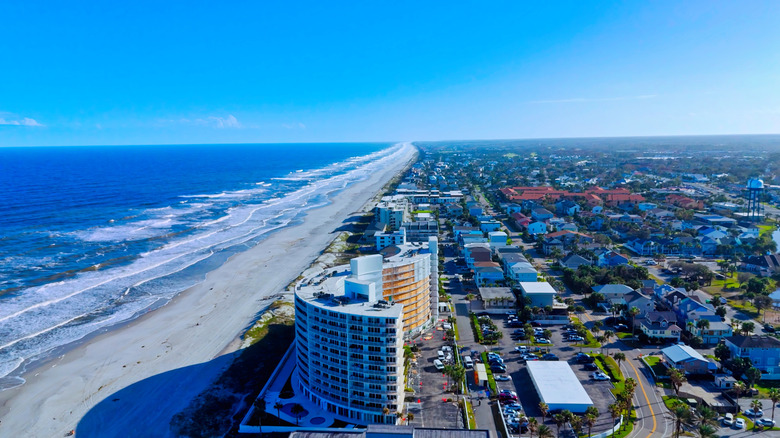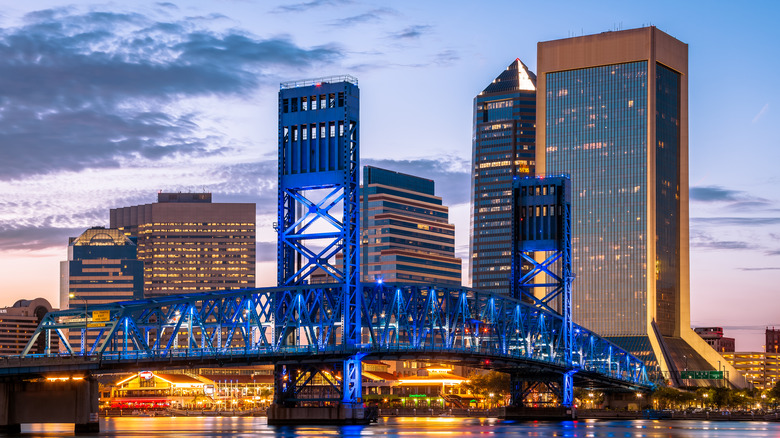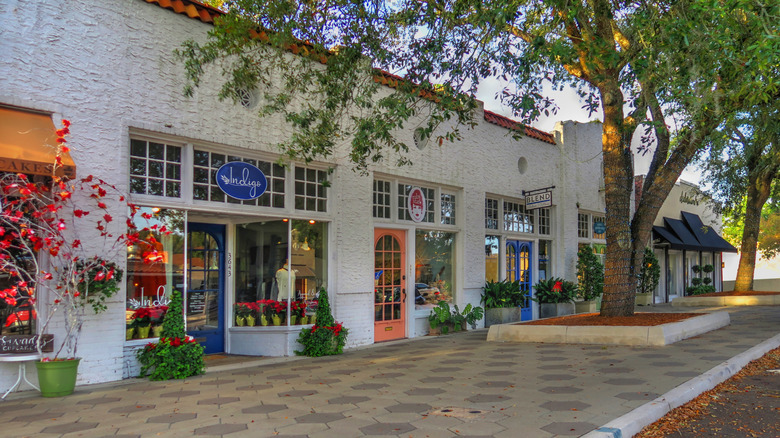The Most Affordable Place To Live In Florida In 2025
Housing prices are rising sky-high all over the country. As more jobs are going remote, it's never been a better time to relocate for more affordable housing. Fortunately, relocating to a cheaper area doesn't mean you have to give up on creature comforts. Florida is one such option, with the same pristine beaches and mild winters of Southern California — all without the mind-numbing cost.
Of course, Florida's affordability varies in different parts of the state. Miami is the most expensive Floridian city, with housing costs 52% higher and a cost of living 20% higher than the state average. Outside of Miami and its environs, Florida's cities are usually on par with or fall below the national average for cost of living. Taxes are also cheaper there — there's no state income tax and sales tax is only around 7%.
If you long for a lower cost of living but don't want to forego the amenities of big-city life, try Jacksonville, Florida. Jacksonville is the cheapest of Florida's large cities like Orlando, Tampa, and Fort Myers. It even beats out smaller cities such as Tallahassee, Gainesville, and Daytona. This Florida area's cost of living is similar to that of smaller towns, offering homeowners the most bang for their buck.
Big city affordability
Jacksonville is the largest city (land-wise) in the continental United States. It boasts the most shoreline of any Florida city (1,100 miles), including 22 miles of white-sand beaches along the Atlantic Ocean. It's also Florida's youngest city, with more military personnel than retirees. For the nature-lover, seven state parks and two national park sites can be found within its borders. Sports fans will know Jacksonville hosts the popular PGA tournament, THE PLAYERS Championship, and the annual Gator Bowl for college football as well as having its own NFL team (the Jaguars). Like most big U.S. cities, Jacksonville has museums, a botanical garden, a highly-rated zoo, and most importantly, an international airport.
But unlike other major U.S. cities, Jacksonville is actually affordable. According to Payscale, housing is 11% lower and cost of living 7% lower than the national average. The average house price in Jacksonville is $289,190, with the most expensive being luxury waterfront properties, which can run from $5 million to $7 million. In most cheap cities, the average wage is lower, evening out the financial benefits of living there. However, Jacksonville's median wage is over $90,000, well over the national average of $66,000. That means you'll actually have money left over to enjoy your surroundings. And there are plenty of jobs to be had, should you choose to make the move. Job growth in Jacksonville is higher than the national average, and there are many diverse industries and major corporations that call it home.
Home expenses to expect in Jacksonville
Although a move to Jacksonville may decrease your overall cost of living, there are a few home costs which may be higher than what you're used to, especially if moving from out of state. Jacksonville has hot summers with highs around 90 degrees Fahrenheit and mild winters with lows never dipping below 45 degrees. Like all of Florida, it's quite humid and rains frequently. As a result, air conditioning and lawn care are often costlier in Florida than in other states. HOA fees are also much higher than elsewhere in the country (around $300 a month for homes and $500 for condos), but there are plenty of well-kept Jacksonville neighborhoods without HOAs. Flood insurance may also be new to you but is typically a necessity in Florida homes. Flood insurance costs around $800 per year.
Jacksonville has many historic homes for sale in sought-after neighborhoods like San Marco and Avondale. If you're thinking of buying a historic house, there may be renovation costs such as energy efficiency improvements. Fortunately, you can get a free energy efficiency assessment from the JEA, Jacksonville's community-owned utility service. If any changes need to be made to the historic home's exterior, you'll have to apply for a Certificate of Appropriateness (COA).
Hopefully the added flood and air conditioning expenses will counteract any cold-weather costs when moving to Jacksonville from further north. Florida has one of the fastest-growing populations in the country, so if you're thinking of making the move, don't hesitate.


